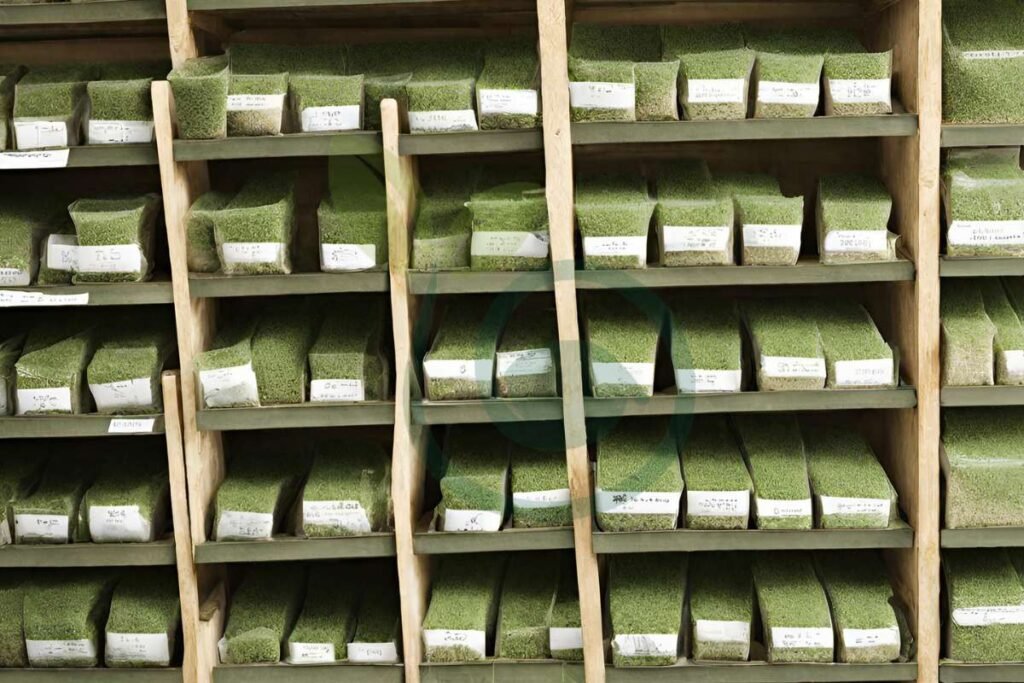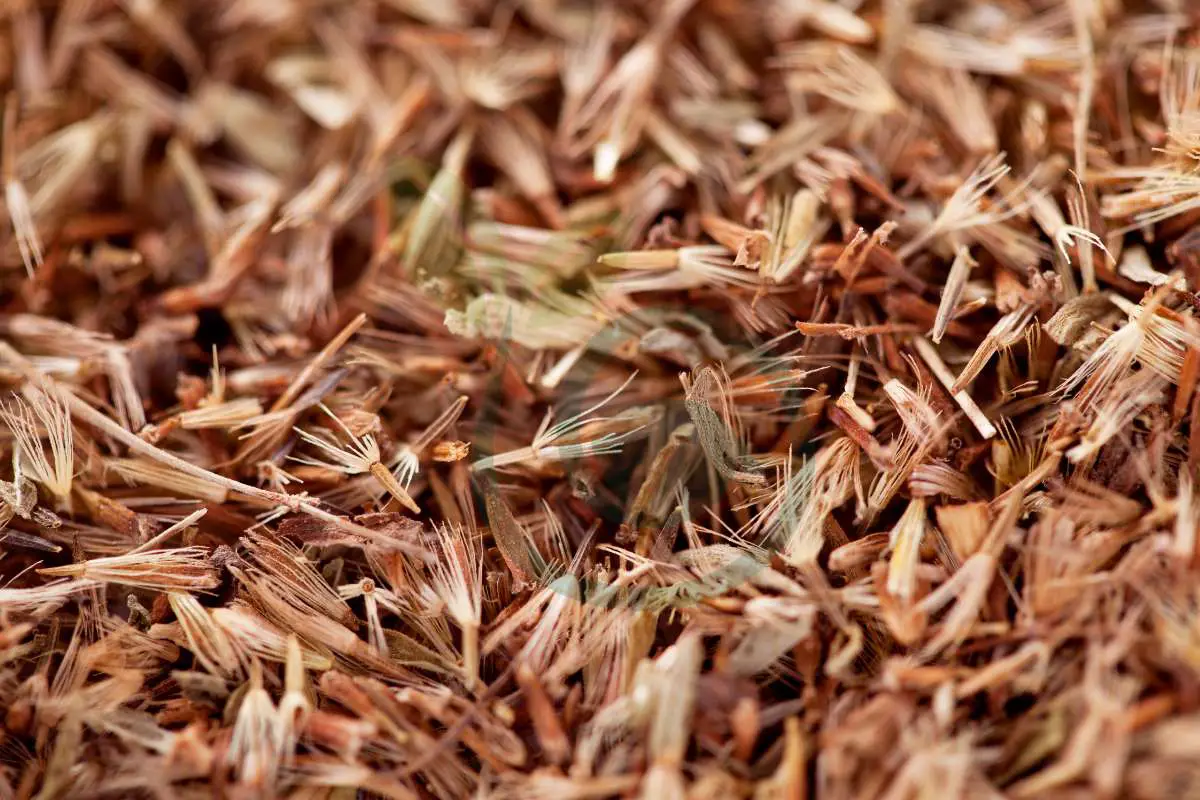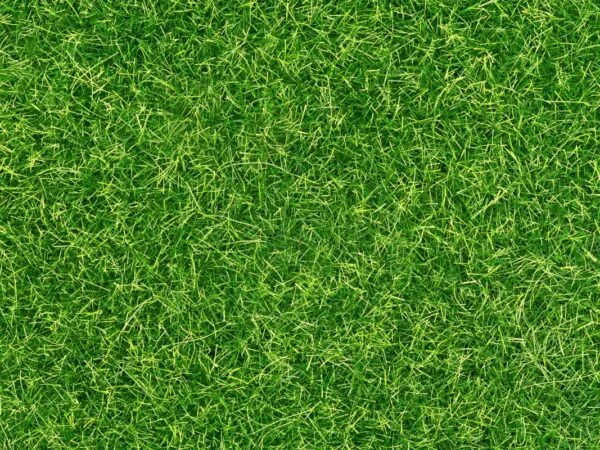Did you know that grass seed, like many other products, has an expiration date? Yes, even those tiny seeds can lose their viability over time. So, if you've found an old bag of grass seed tucked away in your shed or garage, you might be wondering if it's still good to use. Well, the answer isn't as straightforward as you might think.
Using fresh and high-quality seeds is crucial for successful growth. Stay tuned to learn how to determine if your grass seed in the bag is still viable this year and tips for maximizing its germination potential.
Key Takeaways
- Check Viability: Test the viability of your grass seed by performing a germination test before planting to ensure successful growth.
- Optimal Storage: Store grass seed in a cool, dry place away from sunlight in a sealed container to maintain its viability for longer periods.
- Use Fresh Seed: Utilize fresh grass seed to maximize germination rates and establish a lush, healthy lawn.
- Avoid Risks: Steer clear of using expired grass seed to prevent poor germination, leading to patchy or thin grass growth.
- Dispose Properly: Safely dispose of old or expired grass seed by composting or discarding it in accordance with local waste disposal guidelines.
- Quality Over Quantity: Prioritize quality over quantity when choosing between fresh and expired grass seed for optimal lawn establishment and maintenance.
Grass Seed Viability
Expiration Dates
Checking the expiration dates on grass seed packaging is crucial for ensuring seed viability. These dates indicate the period within which the seeds are expected to remain viable. Factors like moisture and temperature can impact expiration dates' accuracy.
How to Tell
Physical Appearance
To determine if grass seeds have aged, inspect their physical characteristics. Look for any signs of decay such as discoloration or damage. Changes in size, shape, or texture can also indicate seed deterioration.
Germination Tests
Conducting germination tests is a practical way to assess seed viability accurately. Follow standardized procedures when performing these tests to obtain reliable results. Understanding germination test outcomes helps in making informed decisions about seed usage.
Factors Affecting Longevity
Storage Conditions
Maintaining optimal storage conditions is essential for preserving grass seeds' longevity. Pay attention to factors like temperature and humidity levels when storing seeds. Avoid storing them in areas prone to extreme environmental conditions that could compromise their quality.
Seed Type
Different types of grass seeds age differently over time due to varying genetic compositions. Understanding how each seed type ages enables you to choose suitable storage methods accordingly. Tailoring storage practices based on seed type enhances their longevity and performance.
Shelf Life Insights
Understanding Shelf Life
Grass seeds have a typical shelf life, usually lasting up to three years if stored properly. Factors like humidity, temperature, and light exposure can affect seed longevity. The longer the seeds are stored, the lower their germination rates may become.
To ensure optimal seed quality, it's crucial to understand how shelf life impacts grass seeds. Proper storage techniques play a vital role in maintaining seed viability over time. By following specific guidelines, you can extend the shelf life of your grass seeds.
Maximizing Shelf Life

Proper Storage Techniques
Implementing proper storage techniques is essential for maximizing the shelf life of grass seeds. Using airtight containers helps protect seeds from moisture and pests that could compromise their viability. Storing seeds in a cool, dry place away from direct sunlight prevents premature aging and maintains their quality.
- Use airtight containers
- Store in a cool, dry place
Avoiding Common Mistakes
Awareness of common mistakes can help prevent issues that shorten seed longevity. Fluctuating temperatures can accelerate seed deterioration; hence it's crucial to avoid exposing them to such conditions. Storing different types of seeds separately reduces the risk of contamination and ensures each batch maintains its viability for longer periods.
- Prevent exposure to fluctuating temperatures
- Store different types separately
Signs of Aging Seeds
Visual Inspection
Inspect seeds visually to check for any signs of aging or damage. Look for mold, discoloration, or unusual odors. Identify potential issues through visual cues.
Germination Testing
Setting Up Tests
Prepare the necessary materials for conducting germination tests. Create a controlled environment for accurate test results. Follow standardized procedures for setting up germination tests.
Interpreting Results
Analyze and interpret germination test results accurately. Understand the implications of different germination rates. Make informed decisions based on test outcomes.
Storage Best Practices
Recommended Containers
Choose suitable containers for long-term seed storage. Opt for airtight and moisture-resistant options to preserve seed viability. Transparent containers allow for easy monitoring of the seeds' condition.
Ideal Conditions
Temperature Control
Maintain consistent temperatures to ensure optimal seed storage conditions. Avoid exposing seeds to extreme heat or cold, which can lead to reduced germination rates. Monitor temperature fluctuations in storage areas regularly.
Moisture Prevention
Prevent moisture exposure as it can deteriorate seed quality over time. Use desiccants or silica gel packs within containers to absorb excess moisture effectively. Ensure proper ventilation in storage containers to prevent mold growth.
Storing grass seeds properly is crucial for maintaining their viability over time. By selecting appropriate containers and creating ideal storage conditions, you can extend the shelf life of your seeds significantly. Keep in mind that improper storage practices can accelerate the aging process of seeds, leading to decreased germination rates and poor plant establishment.
When considering container options, prioritize airtight and moisture-resistant choices that protect seeds from environmental factors like humidity and light exposure. Transparent containers offer the added benefit of allowing you to visually inspect the seeds without compromising their environment by opening the container frequently.
Maintaining consistent temperatures is essential for preserving seed quality. Fluctuations in temperature can impact seed dormancy and overall viability, so it's crucial to store seeds in a location with stable temperatures throughout the year. Extreme heat or cold can damage seeds irreversibly, affecting their ability to germinate successfully when planted.
To prevent moisture-related issues, such as mold growth and reduced germination rates, take proactive measures like using desiccants or silica gel packs within your seed storage containers. These products help absorb excess moisture that could otherwise compromise the integrity of the seeds over time. Ensuring proper ventilation within the containers promotes air circulation and reduces the risk of fungal growth on stored seeds.
Benefits of Fresh Seed
Higher Germination Rates
Implement proper storage practices to achieve higher germination rates. Optimize seed conditions for improved outcomes, enhancing germination through ideal environments.
Healthier Plants
Aesthetic Appearance
Preserve the aesthetic quality of grass seeds by storing them properly. Maintain color, texture, and overall appearance to ensure attractiveness.
Resistance to Pests
Protect seeds from pests that compromise quality. Use pest-control measures and monitor stored seeds for signs of infestations.
Avoiding Expired Seed Risks
Reduced Efficacy
Old grass seeds may exhibit reduced efficacy, leading to poor germination rates and weak growth. As seeds age, their viability decreases, affecting the overall performance in your garden. The impact of seed age on growth can result in sparse or uneven grass coverage.
To prevent issues with reduced seed efficacy, it is crucial to understand the implications of using old seeds. By recognizing how seed age affects germination and growth, gardeners can make informed decisions about seed selection. Proactively addressing these concerns can help maintain a lush and healthy lawn.
Waste of Resources
Using expired grass seeds can be a significant waste of resources, as they may fail to produce the desired results. To avoid investing time and effort into planting ineffective seeds, it is essential to check the expiration date before sowing. Responsible disposal of old seeds ensures that resources are not squandered on non-viable products.
Disposing of Old Seed
Seed Disposal Options
Consider environmentally-friendly options to minimize negative impacts. Composting old seeds is a sustainable practice that reduces waste effectively. By composting, you can contribute to environmental preservation and reduce landfill burden.
Local guidelines often provide specific instructions on how to safely dispose of old seeds. Following these guidelines ensures responsible waste management practices are upheld. Proper disposal methods prevent contamination and promote a healthier environment for future plant growth.
Environmental Considerations
Environmental impact plays a crucial role in seed storage and disposal processes. Opting for sustainable practices when managing seeds helps reduce ecological footprints significantly. Responsible seed handling contributes to maintaining a healthy ecosystem for plants and wildlife.
Fresh vs. Expired Seed
Germination Comparison
Old grass seeds tend to have lower germination rates compared to fresh ones, affecting the success of planting. The viability of old seeds decreases over time, leading to poor germination performance and lower seedling establishment.
When comparing fresh and old grass seeds, it is evident that fresh seeds exhibit higher germination rates, resulting in quicker and more robust plant growth. Planting with fresh grass seeds ensures a higher chance of successful germination, leading to healthier and more vibrant lawns.
Plant Growth Outcomes
The impact of seed age on plant growth outcomes is significant, with old seeds often resulting in weaker plants with slower growth. Observing the growth patterns of plants from old seeds reveals stunted development and overall poorer health compared to those grown from fresh seeds.
Monitoring the health and vigor of plants originating from old grass seeds highlights issues such as patchy growth and susceptibility to diseases. There is a clear correlation between seed age and plant development, emphasizing the importance of using fresh grass seeds for optimal results.
Addressing Common Questions
Frozen Seeds Viability
Grass seeds can remain viable for years if stored properly, even after being frozen. Freezing grass seeds extends their shelf life significantly. When frozen, seeds enter a state of dormancy, preserving their ability to germinate. Thawing frozen grass seeds should be done gradually to prevent shock and ensure successful germination.
Seeds that have been frozen may exhibit delayed germination once planted due to the freezing process. However, with proper care and attention during planting, these seeds can still grow into healthy grass. It is essential to follow recommended thawing methods provided by experts or seed suppliers for optimal results.
Unwatered Seeds Fate
Unwatered grass seeds may lose viability over time as they require moisture to germinate and grow. The survival rates of unwatered seeds decrease significantly compared to well-watered ones. Without adequate water supply, seeds may fail to sprout or die off before reaching maturity.
Investigations show that unwatered grass seeds have lower chances of surviving harsh environmental conditions compared to hydrated ones. Seeds left without water demonstrate reduced resilience when faced with challenges such as drought or extreme temperatures. Proper watering practices are crucial for ensuring the successful growth of grass from seed.
Final Remarks
Now that you understand the impact of expired grass seed and the benefits of using fresh seed, you can ensure a successful lawn reseeding project. Remember to check for signs of aging seeds, follow proper storage practices, and dispose of any old seed responsibly. By prioritizing fresh seed over expired ones, you set yourself up for a vibrant and healthy lawn that will thrive for seasons to come.
Take action today by assessing your current seed stock, investing in fresh grass seed if needed, and kickstarting your lawn rejuvenation journey. Your efforts now will yield lush greenery and a thriving outdoor space that you can enjoy with family and friends. Make the most out of your lawn care routine by starting with quality grass seed – your future garden oasis awaits!
Frequently Asked Questions
Can grass seed lose its viability over time?
Yes, grass seed can lose its viability over time due to factors like improper storage or age. It's essential to check the expiration date and conduct a germination test before planting old seeds.
What are the signs of aging seeds that I should look out for?
Signs of aging seeds include discoloration, mold growth, or a musty smell. These indicators suggest reduced viability and lower chances of successful germination. Opt for fresh seeds for better results in your lawn.
How long can grass seed typically last on the shelf?
Grass seed shelf life varies based on the type and storage conditions but generally ranges from 1 to 3 years. Properly stored seeds in cool, dry places tend to maintain their viability longer than those exposed to moisture and heat.
Is there a difference between fresh and expired grass seed in terms of benefits?
Fresh grass seed offers higher germination rates, leading to healthier lawns with thicker turf coverage compared to expired seeds. Using fresh seeds ensures optimal growth potential and minimizes risks associated with old or ineffective seeds.
How should I dispose of old grass seed properly?
To dispose of old grass seed responsibly, consider mixing it with compost or soil as an eco-friendly option. Avoid throwing it away in regular trash bins as this may contribute to unnecessary waste accumulation. Composting is an environmentally friendly way to repurpose aged seeds.
Image Source: Paid image from CANVA



